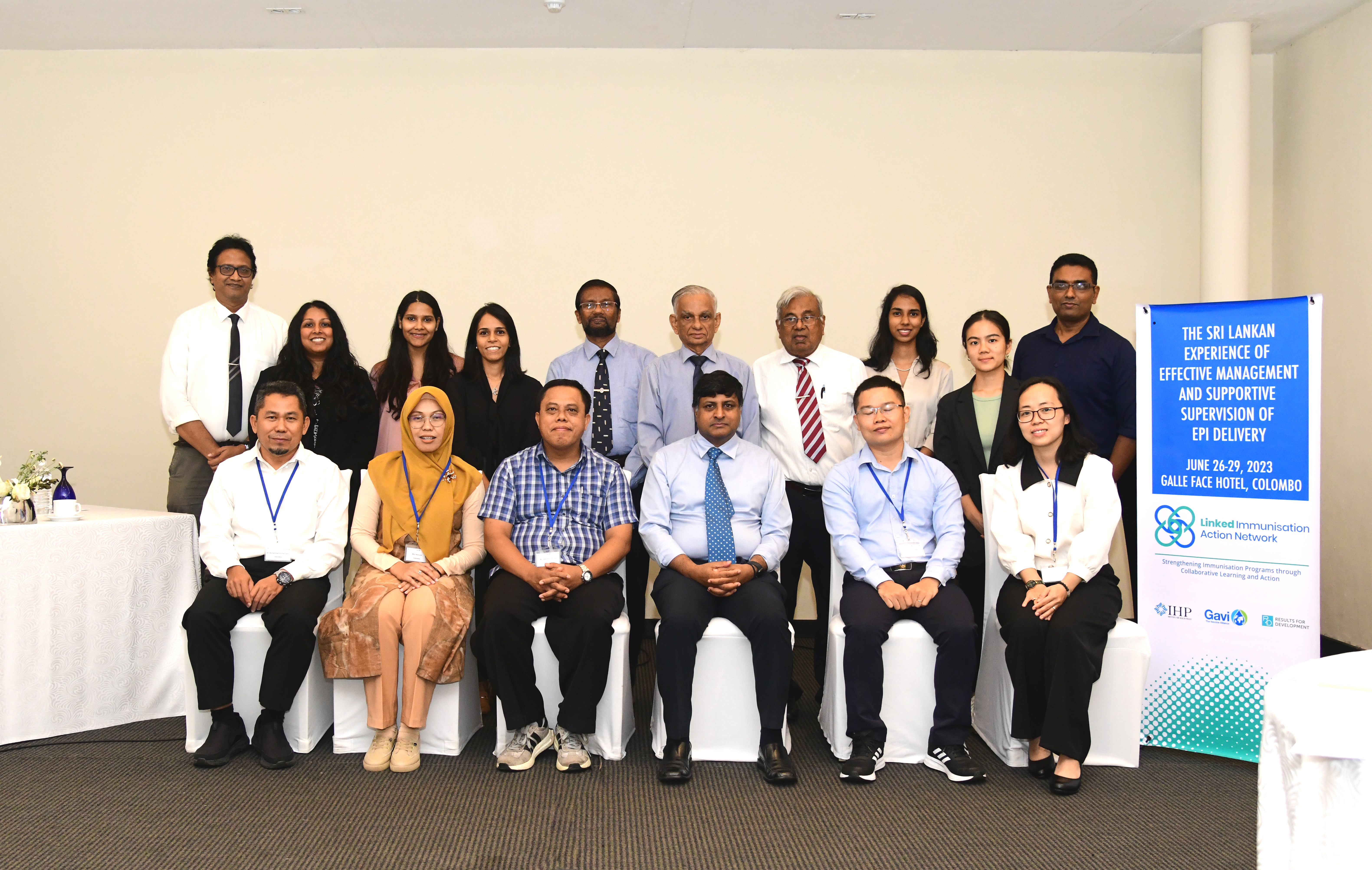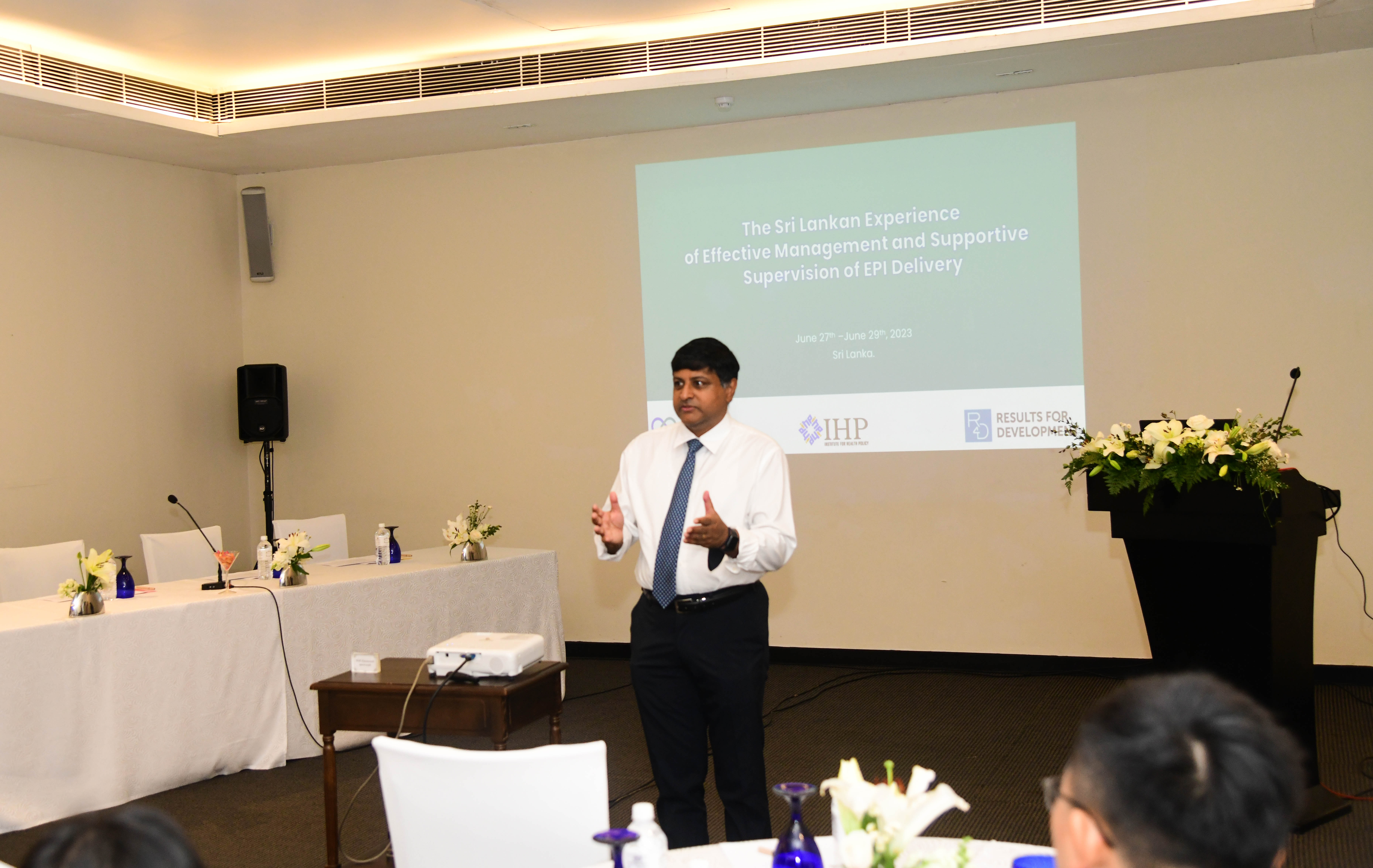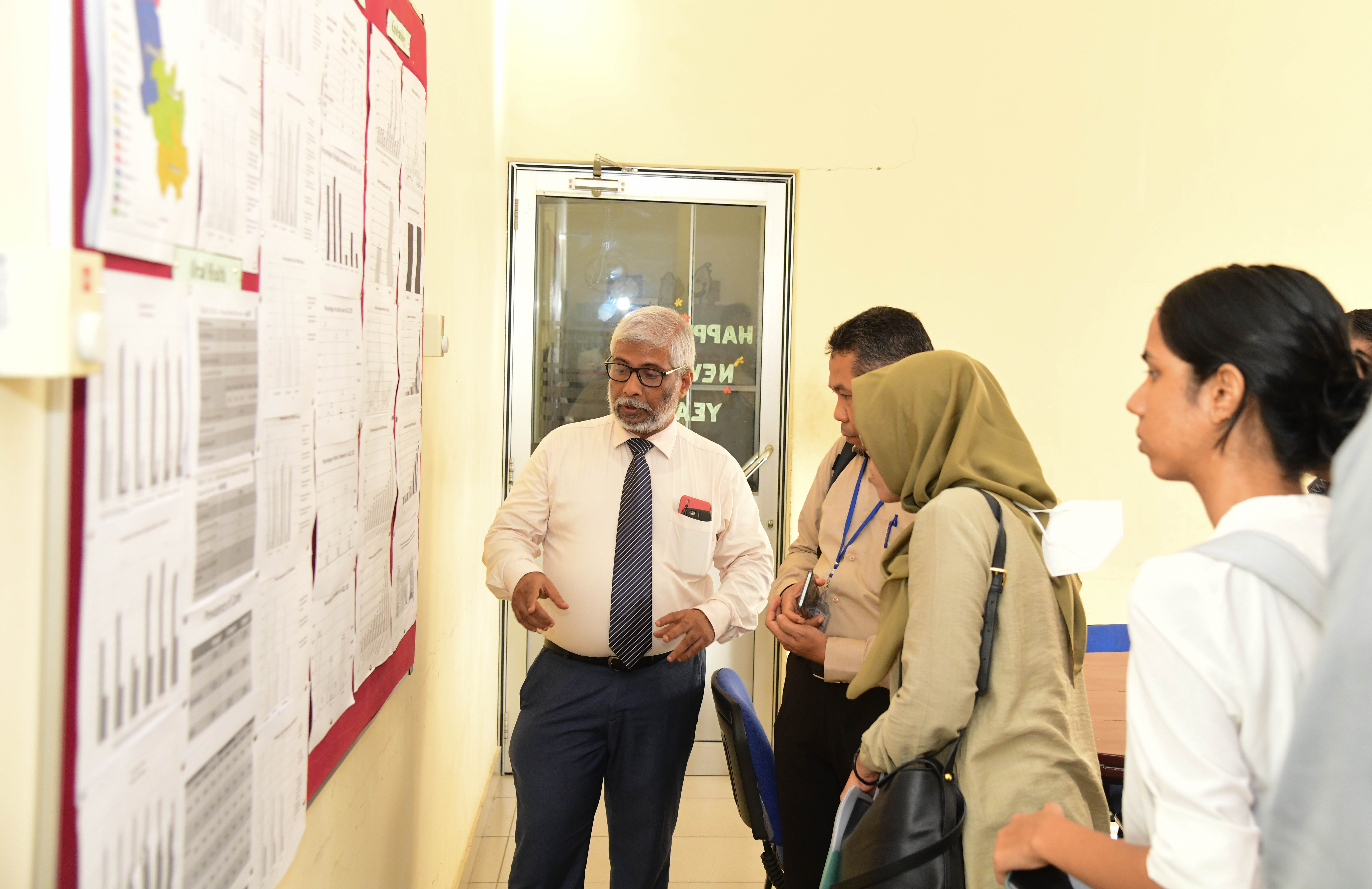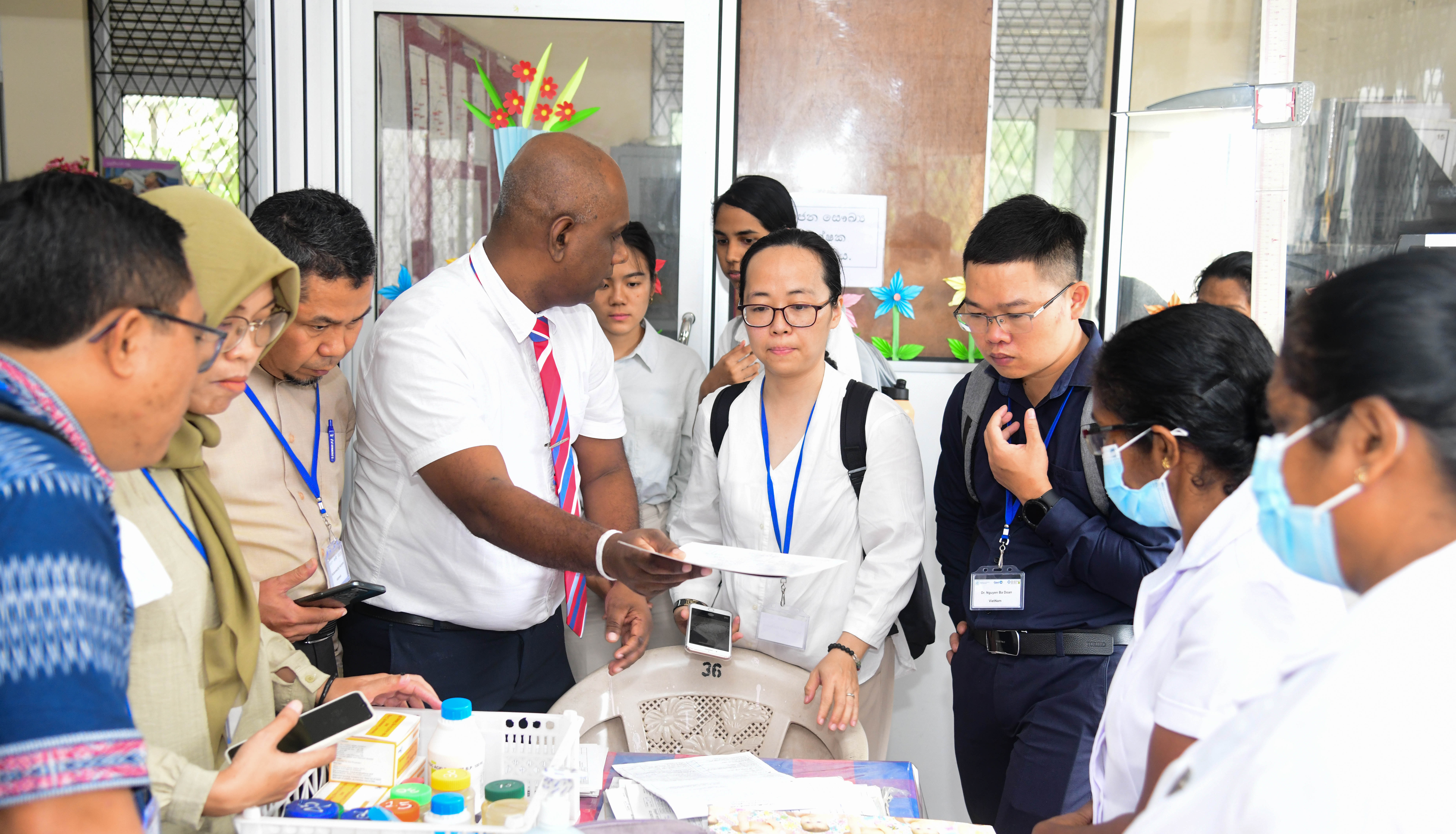The Linked Immunisation Action Network (Linked) successfully hosted a study tour in Sri Lanka in June 2023 with participants from the Indonesia and Vietnam Ministries of Health. Led by the Institute for Health Policy (IHP), the main objective of the study tour was to explore how Sri Lanka’s National Immunisation Programme effectively manages immunisation delivery across multiple levels, under varying and challenging conditions, and at a low cost.

Sri Lanka is an interesting case study because, despite its low health expenditure, it has maintained equitable, pro-poor, and near-universal immunisation coverage for decades, even outperforming some high-income countries. The strength and resilience of the system were further highlighted in the wake of the COVID-19 pandemic when Sri Lanka experienced minimal immunisation backsliding. This is primarily due to the country’s strong public health delivery system and infrastructure, which emphasises routine monitoring and evaluation, supports effective staff management, includes a robust in-service training programme, and employs hierarchal management reviews at all levels.


-
Effective management strategies and monitoring and evaluation: Sri Lanka’s routine monitoring and staff supervision at all healthcare system levels and structured follow-up to ensure recommendations are implemented create an accountability and support framework. Similarly, regular review meetings encourage data completion and accuracy, support identifying repeat issues, and facilitate data-driven decision-making with continuous performance improvement. Furthermore, systematic and frequent collaboration between staff at all levels ensures that frontline concerns are heard by the top-level managers charged with policymaking and resource allocation, ultimately creating a more responsive and effective EPI.
-
Efficient resource management: Sri Lanka's ability to effectively allocate and utilise its human and financial resources is instrumental to the immunisation programme's success. The integration of immunisation services into primary healthcare delivery and the requirement of community-level experience for all Ministry of Health doctors ensure adequate human resources island-wide.
-
Motivation through peer learning, teamwork, and a learning culture: In Sri Lanka, healthcare workers (HWs) are assessed against key performance indicators monthly in a meeting where immunisation data is presented to all staff, including senior-level staff. This format motivates HWs to improve performance through peer accountability, peer-to-peer learning, and group problem-solving. This emphasis on teamwork, motivation, and appreciation fosters a positive learning culture within the healthcare system.
-
Practical training and skills development: Investing in HW development is essential. Required, hands-on, in-service field training conducted by the Postgraduate Institute of Medicine (PGIM) and the National Institute of Health Sciences (NIHS) equip HWs at all levels with the practical experience needed to excel in their roles. For example, doctors who receive in-service training from the PGIM specialise in effectively managing health service delivery. Similarly, midwives are trained in specialist areas, including immunisation, that allow them to educate mothers and administer vaccines without additional support. This required, and often free, specialist training for each category of HWs ensures that every individual can successfully complete their job role.

The study tour to Sri Lanka provided participants from Indonesia and Vietnam with valuable learnings on effective management strategies, supportive supervision, specialised training, and the importance of strong teamwork and a learning culture in strengthening immunisation programmes. By adopting and adapting these key takeaways, countries within the Linked Network can enhance their immunisation programmes and improve overall immunisation delivery.

